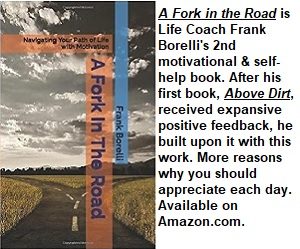Something a lot of my friends have heard me repeatedly say is, “We don’t stop playing because we get old; we get old because we stop playing.” While I still believe that is, to some extent, true, I’ve also observed enough behavior from a few friends to believe that some people simply decide it’s their time to be “old.” Now, understand, by “old” I don’t mean decrepit, etc. but simply no longer in their prime, grandparently, or whatever. Let me share two examples to help me explain what I mean.
 Example one: A woman I know is (as I write this) 56 years old. I’ve known here since she was in her teens, and she’s always been one of those people you’d call “young at heart.” Even after she got married, had kids, and did all the “grown up” things people do, she enjoyed life as much as she could. She minimized the stress in her life by leveraging her off time as much as she could for simply fun. She made a habit of finding the humor in everything she could and laughing at the silliness of stress some people embraced. She understood the idea behind the serenity prayer and she did her best not to worry about the things she couldn’t control. Then one day, seemingly for no good reason, she seemed to become “old” almost overnight. She had become a grandmother, had a position of higher responsibility at work and was an “empty nester” with her husband at home. Somehow, in her mind I think, she changed how she saw herself and instead of being a fun-loving, hard-working, adult, in her own mind she became “elderly.” Her first perception of herself became “grandma,” and she embraced whatever lifestyle fit that image in her mind. Within just a few months she accepted being overweight, took pride in her gray hair, started wearing clothing that, by her own admission, reminded her of her own grandmother. Demonstrably, she had just decided it was her time to “be old.”
Example one: A woman I know is (as I write this) 56 years old. I’ve known here since she was in her teens, and she’s always been one of those people you’d call “young at heart.” Even after she got married, had kids, and did all the “grown up” things people do, she enjoyed life as much as she could. She minimized the stress in her life by leveraging her off time as much as she could for simply fun. She made a habit of finding the humor in everything she could and laughing at the silliness of stress some people embraced. She understood the idea behind the serenity prayer and she did her best not to worry about the things she couldn’t control. Then one day, seemingly for no good reason, she seemed to become “old” almost overnight. She had become a grandmother, had a position of higher responsibility at work and was an “empty nester” with her husband at home. Somehow, in her mind I think, she changed how she saw herself and instead of being a fun-loving, hard-working, adult, in her own mind she became “elderly.” Her first perception of herself became “grandma,” and she embraced whatever lifestyle fit that image in her mind. Within just a few months she accepted being overweight, took pride in her gray hair, started wearing clothing that, by her own admission, reminded her of her own grandmother. Demonstrably, she had just decided it was her time to “be old.”
Example two: A different woman I know is 54 years old and I’ve known her for well over three decades; at least since she was in her early-20s. She has always been an active person, hard worker, involved in her children’s lives, etc. She was an active mother, making sure her children were kept busy, enjoyed extracurricular activities and were kept busy instead of bored at home. Some time after she hit 50, with all of her children grown and out of the house, as she embraced being an empty nester, she fluctuated back and forth from embracing the new freedom due to reduced responsibilities to being sedentary because she didn’t have children home to keep her active. She gained a few pounds, went out minimally for recreational fun, and generally adopted a “grandma” first attitude. She did keep doing a few fun things, but none of it was what you’d consider out of the norm for a traditional grandmother.
 I contrast that with a man I know (and this has nothing to do with gender) who is almost 90, stays very active, embraces and learns new hobbies as the mood hits him and more. He is an active pilot, rock climbs, exercises regularly, etc. He knows his age and recognizes that mortality is a reality. He just doesn’t dwell on it. He has lots of free time thanks to two different retirements that he’s collecting and some high-paying consulting work he occasionally does. But in his free time he is seldom sedentary, engaging in activities that a lot of people in their 30s, 40s or 50s would consider either too risky or too high energy. He is a grandfather several times over and views himself as the hyperactive grandpa who will exhaust his grandkids as he teaches them new things.
I contrast that with a man I know (and this has nothing to do with gender) who is almost 90, stays very active, embraces and learns new hobbies as the mood hits him and more. He is an active pilot, rock climbs, exercises regularly, etc. He knows his age and recognizes that mortality is a reality. He just doesn’t dwell on it. He has lots of free time thanks to two different retirements that he’s collecting and some high-paying consulting work he occasionally does. But in his free time he is seldom sedentary, engaging in activities that a lot of people in their 30s, 40s or 50s would consider either too risky or too high energy. He is a grandfather several times over and views himself as the hyperactive grandpa who will exhaust his grandkids as he teaches them new things.
So, how does one person embrace “being old” in such a high-energy fashion while others use a life’s change as an excuse or justification for allowing themselves to embrace “being old?” The only answer I can figure out is that it’s a choice; a personal choice based on preferences in the moment. Somewhere along the way, the choices for appearance, behavior, etc. becomes a hobby and the person making the choice simply becomes elderly by force of habit.
The good news is that the choice can be changed. It requires conscious acknowledgement that the choice has been made and what the variety of options are, but once that’s consciously recognized, then the person can choose a different course of action. That change of course can result in a change in self-perception and either keep someone from presenting themselves as elderly or change them from that presentation to a more active, youthful and energetic pattern of behavior.
So… how old are you? Not just physically, but between your ears? How do you present yourself? Will you willfully become “elderly?” I choose not to.
